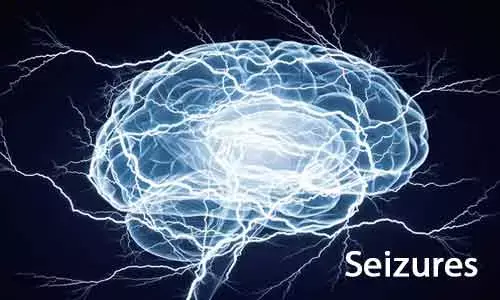- Home
- Medical news & Guidelines
- Anesthesiology
- Cardiology and CTVS
- Critical Care
- Dentistry
- Dermatology
- Diabetes and Endocrinology
- ENT
- Gastroenterology
- Medicine
- Nephrology
- Neurology
- Obstretics-Gynaecology
- Oncology
- Ophthalmology
- Orthopaedics
- Pediatrics-Neonatology
- Psychiatry
- Pulmonology
- Radiology
- Surgery
- Urology
- Laboratory Medicine
- Diet
- Nursing
- Paramedical
- Physiotherapy
- Health news
- Fact Check
- Bone Health Fact Check
- Brain Health Fact Check
- Cancer Related Fact Check
- Child Care Fact Check
- Dental and oral health fact check
- Diabetes and metabolic health fact check
- Diet and Nutrition Fact Check
- Eye and ENT Care Fact Check
- Fitness fact check
- Gut health fact check
- Heart health fact check
- Kidney health fact check
- Medical education fact check
- Men's health fact check
- Respiratory fact check
- Skin and hair care fact check
- Vaccine and Immunization fact check
- Women's health fact check
- AYUSH
- State News
- Andaman and Nicobar Islands
- Andhra Pradesh
- Arunachal Pradesh
- Assam
- Bihar
- Chandigarh
- Chattisgarh
- Dadra and Nagar Haveli
- Daman and Diu
- Delhi
- Goa
- Gujarat
- Haryana
- Himachal Pradesh
- Jammu & Kashmir
- Jharkhand
- Karnataka
- Kerala
- Ladakh
- Lakshadweep
- Madhya Pradesh
- Maharashtra
- Manipur
- Meghalaya
- Mizoram
- Nagaland
- Odisha
- Puducherry
- Punjab
- Rajasthan
- Sikkim
- Tamil Nadu
- Telangana
- Tripura
- Uttar Pradesh
- Uttrakhand
- West Bengal
- Medical Education
- Industry
Levetiracetam found effective for acute seizure prevention in intracerebral hemorrhage: LANCET

A new investigation found that acute seizures in intracerebral hemorrhage can be prevented by Levetiracetam. The study was published in the journal 'The LANCET Neurology.'
There is a 30% incidence of early seizures after intracerebral hemorrhage when subclinical seizures are diagnosed by EEG, and this can cause hematoma expansion and worsening neurological outcomes. Presently there are no guidelines on prophylactic antiseizure treatment. Hence researchers conducted a double-blind, randomized, placebo-controlled, phase 3 trial to assess if prophylactic levetiracetam would reduce the risk of acute seizures in patients with intracerebral hemorrhage.
The phase 3 PEACH trial was conducted at three stroke units in France by including patients who were aged 18 years or older and presented with a non-traumatic intracerebral hemorrhage within 24 h after onset. The participants were randomly assigned with a web-based system and stratified by center and National Institutes of Health Stroke Scale (NIHSS) score at baseline, to intravenous levetiracetam 500 mg every 12 h or matching placebo. The treatment was carried out for 6 weeks and continuous EEG was started within 24 h after inclusion and recorded over 48 h. The primary endpoint was the occurrence of at least one clinical seizure within 72 h of inclusion or at least one electrographic seizure recorded on continuous EEG, analyzed in the modified intention-to-treat population, which comprised all patients who were randomly assigned to treatment and who had a continuous EEG performed.
Results:
- 50 patients with mild-to-moderate severity intracerebral hemorrhage were included between June 1, 2017, and April 14, 2020.
- 24 were assigned to levetiracetam and 26 to placebo.
- During the first 72 h, a clinical or electrographic seizure was observed in three (16%) of 19 patients in the levetiracetam group versus ten (43%) of 23 patients in the placebo group.
- All seizures in the first 72 h were electrographic seizures only.
- No difference in depression or anxiety reporting was observed between the groups at 1 month or 3 months.
- Depression was recorded in three (13%) patients who received levetiracetam versus four (15%) patients who received placebo, and anxiety was reported for two (8%) patients versus one (4%) patient.
- The most common treatment-emergent adverse events in the levetiracetam group versus the placebo group were headache, pain, and falls.
- The most frequent serious adverse events were neurological deterioration due to the intracerebral hemorrhage and severe pneumonia.
- No treatment-related death was reported in either group.
Thus, the researchers concluded that for preventing acute seizures in intracerebral hemorrhage, Levetiracetam might be an effective solution.
For further reading, click here: 10.1016/S1474-4422(22)00235-6
Peter-Derex L, Philippeau F, Garnier P, et al. Safety and efficacy of prophylactic levetiracetam for prevention of epileptic seizures in the acute phase of intracerebral haemorrhage (PEACH): a randomised, double-blind, placebo-controlled, phase 3 trial. Lancet Neurol. 2022;21(9):781-791.
BDS, MDS
Dr.Niharika Harsha B (BDS,MDS) completed her BDS from Govt Dental College, Hyderabad and MDS from Dr.NTR University of health sciences(Now Kaloji Rao University). She has 4 years of private dental practice and worked for 2 years as Consultant Oral Radiologist at a Dental Imaging Centre in Hyderabad. She worked as Research Assistant and scientific writer in the development of Oral Anti cancer screening device with her seniors. She has a deep intriguing wish in writing highly engaging, captivating and informative medical content for a wider audience. She can be contacted at editorial@medicaldialogues.in.
Dr Kamal Kant Kohli-MBBS, DTCD- a chest specialist with more than 30 years of practice and a flair for writing clinical articles, Dr Kamal Kant Kohli joined Medical Dialogues as a Chief Editor of Medical News. Besides writing articles, as an editor, he proofreads and verifies all the medical content published on Medical Dialogues including those coming from journals, studies,medical conferences,guidelines etc. Email: drkohli@medicaldialogues.in. Contact no. 011-43720751




